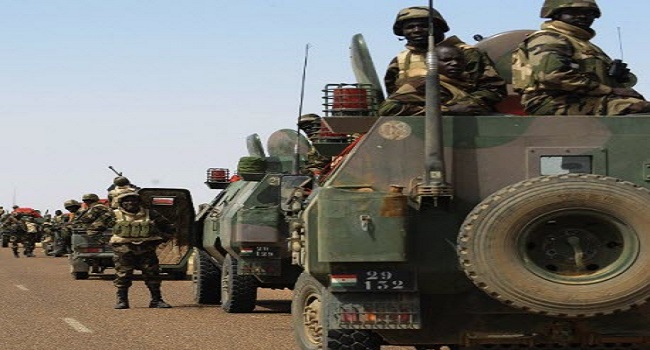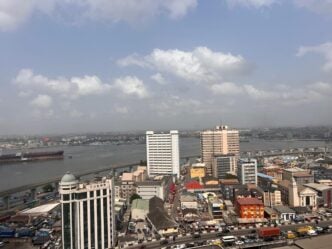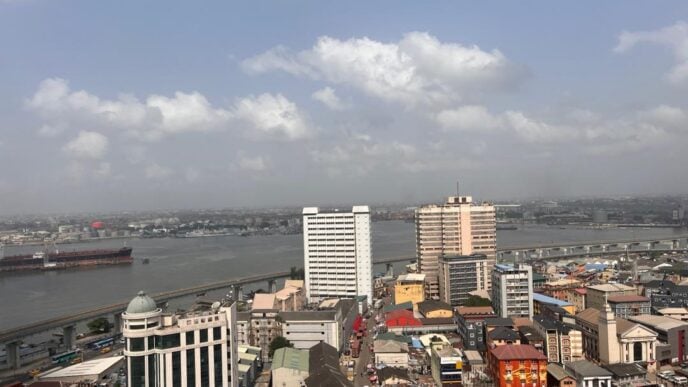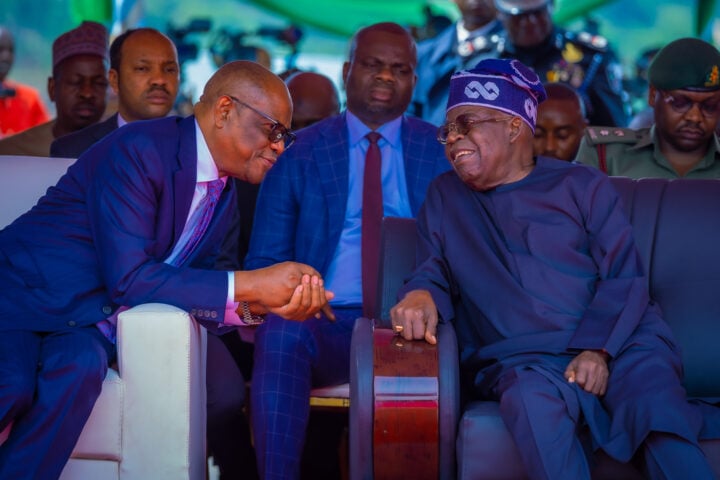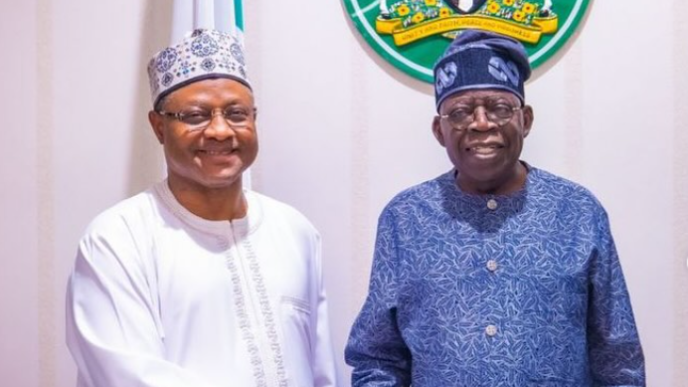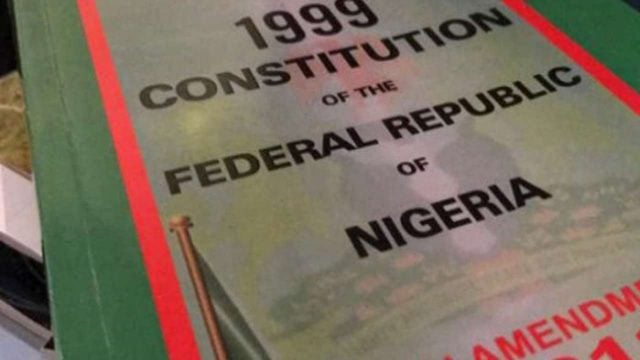Sub-Saharan Africa stands at a pivotal moment as an American flirtation with isolationism imperils its security. Jihadist insurgencies, maritime piracy, and foreign encroachment threaten the continent’s stability, yet reliance on a United States distracted by domestic priorities is no longer tenable.
The talk of American withdrawal from NATO or a step-back from European security, which used to be a very fringe idea, is no longer fringe, as seen in Vice President JD Vance’s statements in the group chat from SignalGate. If Europe is not spared from growing American isolationism, Africa, in the best of times, a mere afterthought to Washington, would not be. As such, African leaders must act urgently by crafting a workable, self-reliant security framework that engages Washington as a partner, not a protector, to counter rising rival influence and safeguard a region on the brink of deeper turmoil.
Sub-Saharan Africa faces a complex web of threats. In April 2025, JNIM’s attack in Burkina Faso killed over 100 civilians as part of a Sahel crisis, displacing 4.1 million people, according to UNHCR estimates. Al-Shabaab’s 2024 bombings in Somalia, claiming 60 lives in Mogadishu, and piracy in the Gulf of Guinea, costing $2 billion annually in trade losses, all serve to undermine economic progress. The United States has been a critical ally through U.S. Africa Command (AFRICOM), established in 2007, with its main base at Camp Lemonnier in Djibouti hosting thousands of personnel. In 2024, the U.S. provided $1.3 billion in security assistance, supporting Nigeria’s campaign against Boko Haram, Kenya’s efforts to secure maritime routes, and South Africa’s training of African Union (AU) peacekeepers. Exercises like African Lion 2024, which involved troops from Ghana to Tunisia, strengthened regional coordination, while U.S. drone strikes in Somalia disrupted al-Shabaab, killing 15 militants in March 2025.
This partnership is not without friction. Many Africans perceive AFRICOM as a vehicle for U.S. geopolitical aims: securing oil, minerals and strategic waterways like the Red Sea—rather than a true partner. In 2024, rumours of a planned US military base in Nigeria led to a storm of anti-American and Western sentiments from political actors in the country’s North, which drew a statement from the US Mission in Nigeria. These sentiments mirrored Ghana’s 2018 protests against defence agreements. Mali’s 2024 expulsion of Western forces and Burkina Faso’s shift to non-Western allies point to growing distrust. AFRICOM’s operations faced a setback when Niger’s junta expelled U.S. troops from Air Base 201 in March 2024, resulting in a forced pivot to Djibouti and smaller outposts in Benin and Kenya. Against Boko Haram, the Multinational Joint Task Force (MNJTF), comprising Nigeria, Chad, Cameroon, and Benin, has been the primary mechanism. Its Operation Lake Sanity 2, from April to July 2024, reclaimed Lake Chad territories and facilitated civilian returns to areas like Bama and Banki while disrupting insurgent supply lines. ECOWAS, while pledging a counterterrorism force at its July 2024 Abuja summit, remains hamstrung by a $2.3 billion funding shortfall and the withdrawal of Mali, Burkina Faso, and Niger to form the Alliance of Sahel States. These issues have contributed to the collapse of the MNJTF as Niger pulled out of the cooperation in March 2025.
Advertisement
Geopolitical rivals are swiftly exploiting these divisions. China, with a naval base in Djibouti since 2017, provides military grants to a number of countries, including patrol boats to Nigeria, securing access to cobalt and trade routes worth $200 billion annually. Russia is known to supply 25% of Africa’s arms from 2020 to 2024 and uses this influence to support Mali’s junta with Africa Corps mercenaries, replacing Wagner and targeting gold reserves that fund 10% of its military budget. Saudi Arabia and the UAE have invested $1 billion in ports across Somalia and Sudan, allowing such investments to control Red Sea lanes, which are critical for $500 billion in global trade. Turkey’s Mogadishu base, which was launched in 2017, currently trains 5,000 Somali troops, enabling it to extend influence into Ethiopia and Kenya, while its drones patrol Somalia’s coast against piracy, taking these gains as spoils from Ankara’s exploitation of the rivalry between Somalia and Ethiopia over Somaliland. In arming Sudan’s Rapid Support Forces with drones since 2023, Iran takes advantage of a civil war displacing 10 million, destabilising neighbours like Chad, where U.S. counterterrorism interests converge. These actors leverage anti-Western sentiment in many ways that cannot rival the pro-Eastern charismatic personality that Burkina Faso and its head of state, Ibrahim Traore, have embodied in their capture of international interest and admiration.
An isolationist America, fueled by political rhetoric prioritising domestic issues, threatens to dismantle this framework. While AFRICOM remains operational, the recently passed Big, Beautiful Bill threw up more cuts to foreign aid, with Africa’s $1.3 billion package at risk of a 20% reduction. A United States focused on homeland threats—cyberattacks, border security, or Pacific rivalries—may downsize Djibouti’s operations, limiting intelligence critical for tracking groups like Boko Haram. In reality, Nigeria’s $900 million defence budget is spread thin across multiple conflicts, and as such, not in any way capable of replacing U.S. satellite surveillance. Kenya’s navy relies on American radar systems but risks losing ground to pirates disrupting £35 billion in Gulf of Guinea trade; consequently, South Africa’s 4,000 peacekeepers depend on United States airlift for African Union missions and might falter without logistical support. Without American backing, insurgencies such as JNIM, which controlled 40% of Mali’s territory in 2024 according to a United Nations estimate, could spread to Senegal and Côte d’Ivoire and thereby overwhelm under-resourced defences.
This would severely impact the United States homeland since Africa’s ungoverned spaces throw up threats reaching American shores. Al-Shabaab has recruited 20 United States-based Somalis since 2015, and several were linked to domestic terror plots as reported by the Federal Bureau of Investigation. West African trafficking routes supply 10-15% of United States cocaine and thus fund groups like Boko Haram, whose online propaganda targets Western interests, including United States diaspora communities. A reduced United States presence might embolden al-Qaeda affiliates such as JNIM, whose Sahel networks plan global attacks, as evidenced by Mali’s 2023 threats against Western targets. Neglecting Africa’s role as a terror buffer could lead to attacks on United States cities, embassies or infrastructure and thus undermine isolationism’s promise of security.
Advertisement
Self-reliance requires internal reform and innovation for Nigeria’s defence budget–undeniably one of the largest on the continent, which increases annually but lacks transparency in funds disbursement and auditing. This corruption has hampered efforts against Boko Haram and emerging groups like the Islamic State Sahel Province. South Africa’s £240 million arms industry, supplying 15% of African Union mission equipment, can expand to meet regional demand and thus reduce dependence on Russian imports. Kenya’s drone programme disrupted al-Shabaab supply lines in 2024 and demonstrates the potential of local technology; therefore, investing £40 million more could double its fleet. Combating corruption is essential; Ghana’s 2024 defence audits recovered £16 million in misallocated funds and provided a model for ensuring resources reach frontline troops rather than private coffers.
Africa should maintain strategic engagement with the United States and frame its stability as a bulwark for American homeland security. Joint threat assessments linking groups like JNIM to United States vulnerabilities can sustain a leaner AFRICOM focused on training and intelligence rather than permanent bases. This benefits both: the United States counters global terror whilst Africa builds autonomy and thus avoids the overreach that fuelled Mali’s 2024 backlash. Although Washington has not altogether disappeared by continuing airstrikes on Al Shabaab and IS-Somalia, such a focus on the Horn is telling. And if there is anything to be learned from the US-brokered deal between DR Congo and Rwanda over the threat that M23 poses, it is that naked national interest which drove American involvement in its quest to secure critical mineral rights in its competition with China is going to be the norm, and such deals in themselves do not necessarily mean American help when shit hits the roof. This is something the Ukrainians can speak all too well to following the minerals deal they signed with the US earlier this year.
The continent and its leaders must rise to these new realities. Trump’s meeting with some African leaders in July 2025 may have mostly been about trade and disagreements over becoming third-party sites for unwanted American illegals, but it need not have been. Africans have to ensure that while agreeing to buy more American goods in exchange for lower tariffs, they insist more on defence collaboration and shared intelligence to complement the gaps thrown up by partnerships with other players in the same space.
MacHarry is a security analyst at SBM Intelligence
Advertisement
Views expressed by contributors are strictly personal and not of TheCable.

